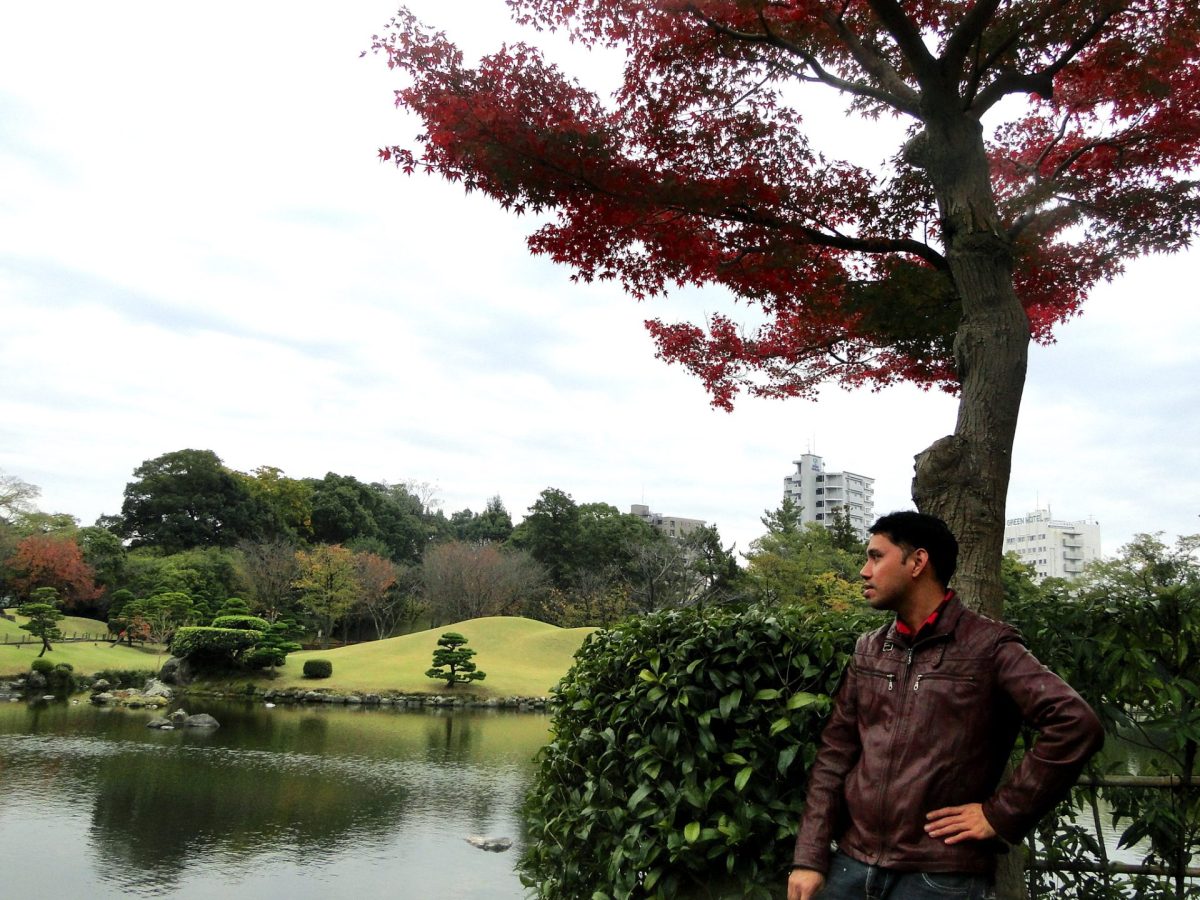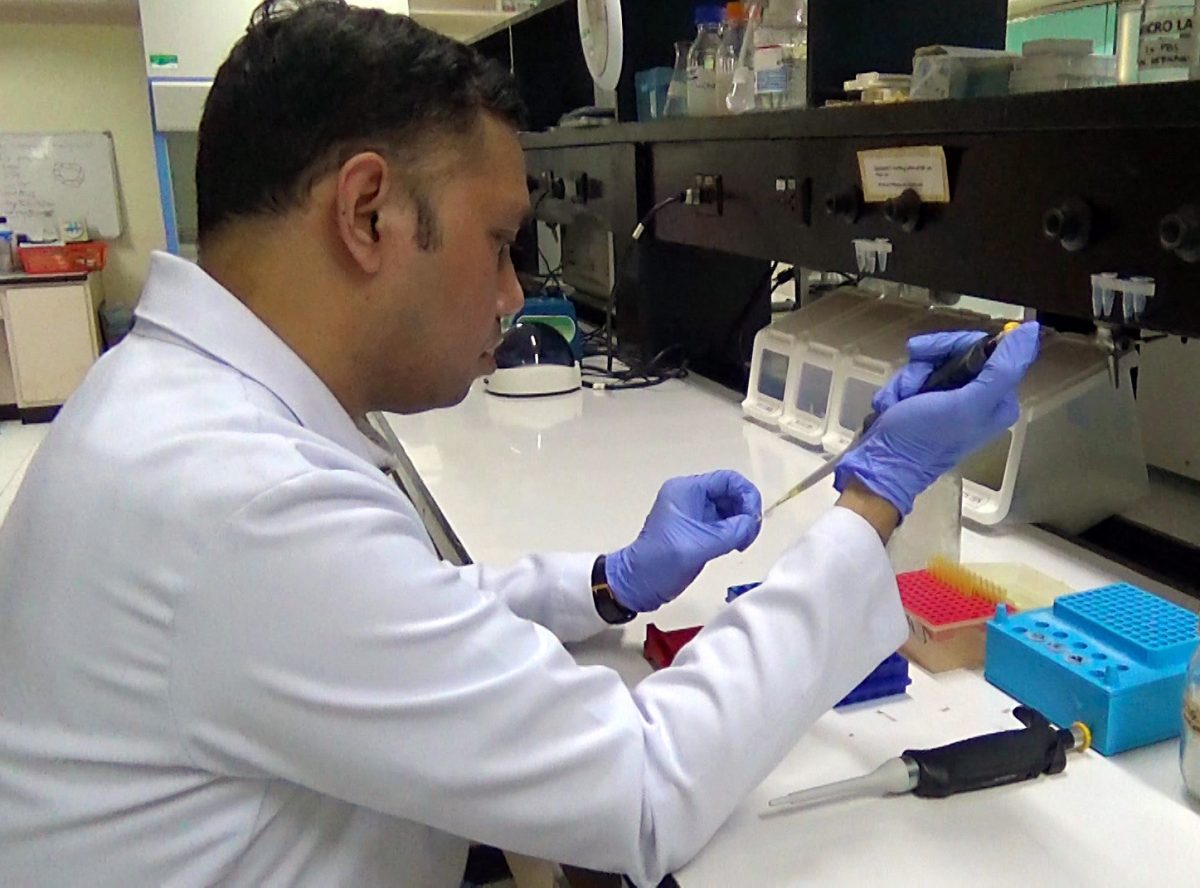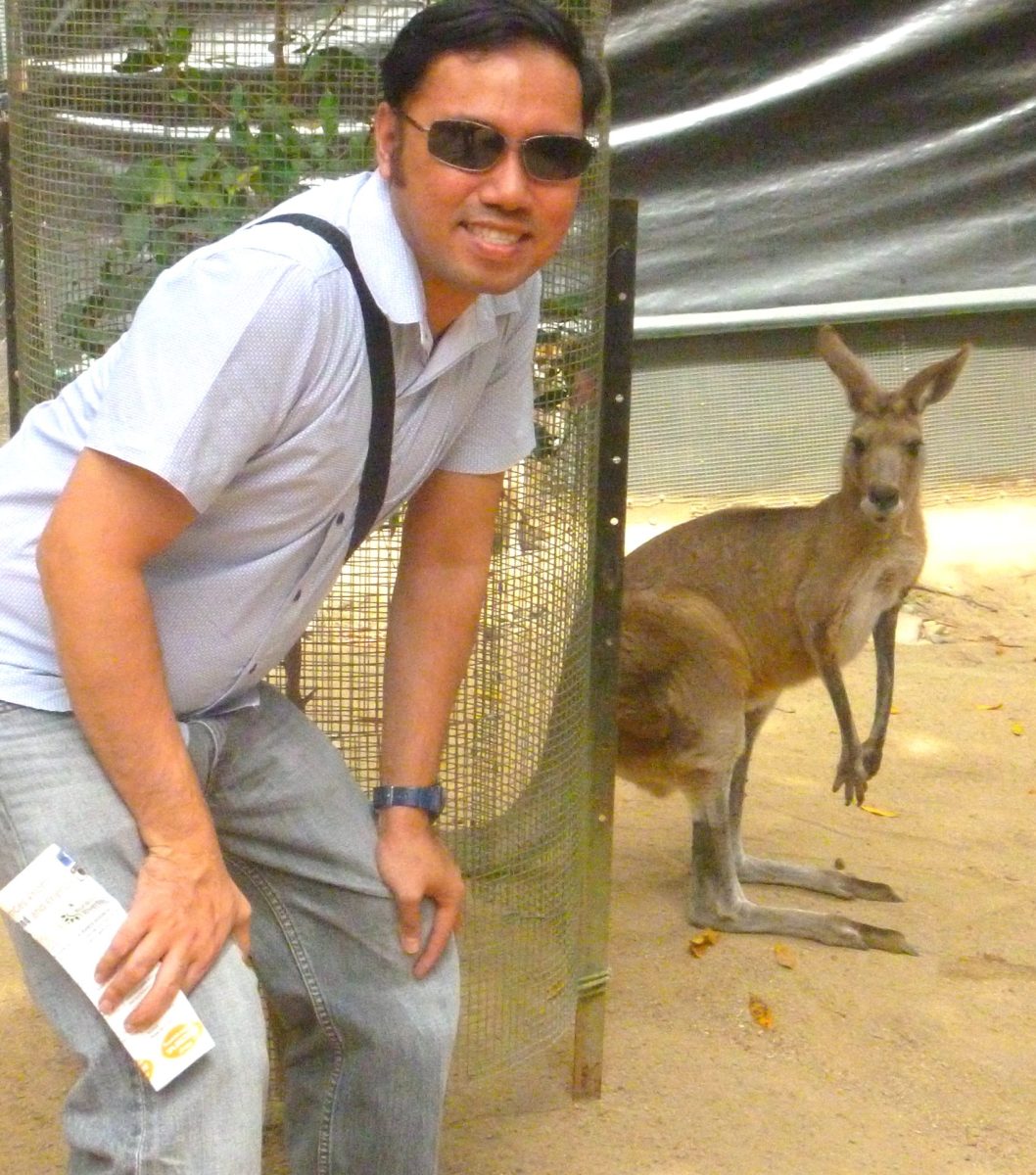Galay, Remil Linggatong
VISITOR’S VOICE
Interview with Remil Linggatong Galay »
College of Veterinary Medicine, University of the Philippines Los Baños

What are your favorite things?
Dogs
I am a veterinarian by profession and I’m very fond of dogs. Our family in the Philippines is taking care of seven dogs. They are my stress relievers.
Cooking
I love cooking. Even when I’m tired, I cook my food, and I feel relaxed. I also like cooking for other people. Cooking food is like doing research, especially when trying out new recipes or using a different variety of ingredients.
Traveling
I like visiting different places and experiencing various local things and cultures. My travels are filled with adventure, just like doing research.
Interview
Becoming a Devoted Researcher with a Purpose
01
Please tell us about your research.
My research is mainly on arthropod-borne diseases, which affect animals and humans worldwide. According to the World Health Organization (WHO), 80 percent of the world’s population is at risk of contracting one or more of these diseases, which are responsible for more than 700,000 deaths every year. Our research team at the University of the Philippines Los Baños and my collaborators from Japan, including my former PhD adviser, have been conducting studies on different tick-borne diseases for several years already. Several arthropod-borne diseases are known to occur in the Philippines, but those transmitted by mosquitoes receive the most attention. These diseases can detrimentally affect the health and lower the productivity of animals, which can cause reduced income or even result in substantial economic losses to those raising the animals. Arthropod-borne diseases can also be acquired by humans and cause serious health effects. Our group is investigating the occurrence of arthropod-borne diseases that can affect both animals and humans, including those that are not yet reported in the Philippines. We are using advanced scientific techniques, such as polymerase chain reaction (PCR) to detect the presence of pathogens among domestic animals and determine their distribution in different areas of the country. Through those studies, we have discovered some tick-transmitted pathogens that were not known to occur in the Philippines. Knowing more about these diseases is critical for implementing necessary control and preventive measures. Moreover, since the diagnostic capability of many laboratories in the Philippines is limited, we are trying to develop simple yet efficient, cost-effective, and highly reliable diagnostic methods that can be applied in the field. One such method is loop-mediated isothermal amplification (LAMP), which is easier and cheaper to apply than other more sophisticated molecular techniques. I want to improve our country’s diagnostic capability to efficiently treat and control these infectious diseases.

02
Can you share with us an episode about any influential people, things, and places you have encountered whilst doing your research?
I have been very active in the dissemination of our research results in the international scientific community by attending international meetings and conferences. Because of that, I could visit several countries, including Mexico, Australia, South Korea, the USA, Thailand, Romania, and Indonesia. Through these international meetings and conferences, I am able to meet leading experts in our field. I feel exhilarated when I meet and converse with researchers’ whose published papers I have read and cited. I also gain new research ideas when I attend those gatherings. By learning about the studies done by researchers from other countries, I can identify research gaps in our country that need to be filled and learn about various techniques. A good example of this is my recently acquired research question on the occurrence of scrub typhus in the Philippines. When I attended the Asia Pacific Rickettsia Conference in Thailand in 2019, I found it interesting that although the Philippines is considered among the areas where the disease is endemic, we do not have recent reports on it. The last published report about scrub typhus in the Philippines was almost a half-century ago. Thus, when I returned from the conference, I started planning my research.

03
How do you overcome the difficulties in putting together the results of your research into a research paper or book?
In every research project I engage in, I make sure that the objectives are clear and defined. Clarity about the objectives will guide how to collect and organize the data. In scientific writing, organizing data is very important, and usually, they are presented according to the objectives set beforehand. Although scientific writing is generally highly technical, it should also be organized and narrated like a story. One set of results usually leads to another question, which should be answered by presenting another set of results. Reading published research articles similar to my work is very helpful because they provide good background and serve as a reference to which I can compare and contrast our findings. The discussion of the results should be substantial and is best backed up by previous findings.
04
What is your ideal image of a researcher, and do you have any advice for those who aim to become researchers?
A researcher must always be curious and have an open mind. There are always research gaps that should be filled, and there are several ways to do it. Being an experienced researcher or a known scientist does not make one an “all-knowing” individual. Learning is a life-long process; thus, every researcher should always be willing to learn and re-learn. Lastly, I want to quote Dr. Gelia Tagumpay Castillo, a National Scientist in the Philippines, regarding the essence of doing research: “Whatever approach we choose, it is important to remember that science must always serve a human purpose. When the best science and scientists are devoted to the problems of those who have less in life, that is equity and ethics at its best.”
05
What are your future ambitions as a scholar?
I want to do research that will have an impact and will be beneficial to many. In addition to publishing more manuscripts, I want to produce more tangible research outcomes that will solve real-life problems and significantly contribute to society. I also want to mentor more veterinarians and researchers who can also help to address the needs of many.
(July 2023)
Remil Linggatong Galay is a Visiting Research Scholar of CSEAS
from July – September 2023
Thank you for taking the time to read the Visitor’s Voice interview.
Your feedback is important to us, so please let us know what you think.